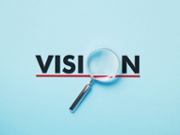|
|
 
| |
 |
| (Catherine McQueen/Getty Images) |
Social workers are raising concerns about the mental health effects of food insecurity as a potential government shutdown looms that could disrupt SNAP benefits for millions, writes Phil Lane, a licensed clinical social worker. "It is clear that there is a research-backed link between food insecurity and mental health problems such as anxiety and depression," Lane writes.
|
|
|
 
|
Bob Cooper, a social worker at South Texas Health System, has provided tips for caring for loved ones with dementia, noting that wandering is common because patients often try to follow past routines. Cooper advises families to inform neighbors of their situation, have their loved ones wear bright clothing and medical bracelets, post "do not exit" signs and use GPS trackers and doorbell cameras.
|
|
|
Students with special educational needs and disabilities are significantly more likely to be absent from school than their peers. Higher suspension rates for these students compound persistent absenteeism. High rates of absence and suspension among students with special educational needs have lasting consequences, increasing the risk of dropping out of school without a diploma and limiting future employment prospects.
|
|
|
OpenAI has disclosed data indicating that 0.07% of ChatGPT users active in a given week show signs of mental health emergencies, such as mania or suicidal thoughts, which could equate to hundreds of thousands of individuals, given the platform's 800 million weekly users. The company has engaged over 170 global mental health experts to develop responses encouraging users to seek real-world help. OpenAI also estimates 0.15% of ChatGPT users have conversations that include "explicit indicators of potential suicidal planning or intent."
|
|
|
 
|
A federal judge in Seattle has ruled that the Trump administration must restore millions of dollars in school mental health grants to certain recipients in sixteen Democratic-led states. The judge found the administration's decision to withhold the funds, citing opposition to diversity-focused criteria, was arbitrary and capricious. The preliminary order restores funding to affected districts while the legal challenge continues.
|
|
|
HHS and the FDA are targeting potentially misleading direct-to-consumer drug advertising, requiring full safety warnings and issuing cease-and-desist letters to companies including Hims & Hers and Novartis. Legal challenges are likely, as similar efforts have faced First Amendment issues in the past.
|
|
|
 | The Future of Retail: What's Coming in 2026
AI personalization and seamless customer experiences defined 2025, but the retail landscape is about to shift again. Join us on November 5th for a fast-paced webinar where industry experts reveal the top trends and technologies shaping 2026. Discover how to stay ahead, boost productivity, and deliver next-level shopping experiences. Register now! |
|---|
| |
|
|
   
| |
 |
| (MicroStockHub/Getty Images) |
Poor vision among leaders can prevent them from recognizing how managers are treating employees, which may lead to organizational problems such as eroded confidence and a lack of prompt, aligned action, says S. Chris Edmonds, an executive consultant with The Purposeful Culture Group. Edmonds highlights the importance of proactive observation and feedback systems, sharing an example of a client who uses a simple online feedback form to stay informed about employee and customer experiences.
|
|
|
Giving feedback requires courage, especially if the input is negative, since no one wants to get a defensive response, writes Shari Harley, founder and president of Candid Culture, who recommends putting people at ease by asking for feedback, defining what type it should be, thanking them for giving it and deferring any response to negative feedback for later. "You're not being dismissive; you're ensuring your emotions don't take over. If you want to have a second conversation, have it within a week," Harley advises.
|
|
|
| ICYMI: Yesterday's most popular story |
|
Memphis-Shelby County Schools has seen a significant drop in student participation in suicide and bullying prevention training because of the Tennessee Families' Rights and Responsibilities Act, which requires parental consent for psychological services. The law, intended to protect parental rights, has been amended to allow some non-emergency care, but MSCS officials say it still limits the reach of mental health support, particularly from social workers.
|
|
|
| | |
